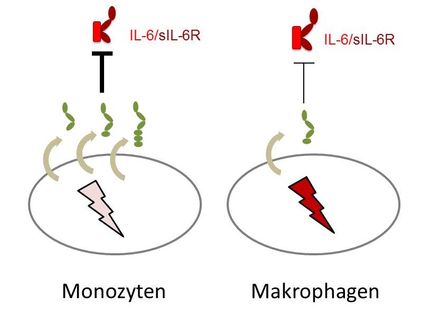Discovery of Cellular Mechanism of Action of tACPA in Rheumatoid Arthritis
Citryll B.V. founded to accelerate tACPA development
Advertisement
ModiQuest B.V announces that it has discovered the cellular mechanism of action of its therapeutic anti-citrullinated protein lead antibodies (tACPA) for the treatment of rheumatoid arthritis (RA) and other diseases. To accelerate tACPA development towards clinical Proof of Concept, facilitate funding, and attract a development partner, Citryll B.V. was founded as a single asset drug development company.
The tACPAs are active in different validated RA animal models and models for other human diseases. They exert their therapeutic effect by inhibiting the formation of Neutrophil extracellular traps (NETs) as shown with primary human neutrophils. NETs are extracellular lattices of decondensed chromatin decorated with antimicrobial factors, whose function is to eliminate invading microorganisms. Dysregulated NETosis constitutes a pathogenic mechanism in autoimmune and sterile inflammatory diseases. This offers novel therapeutic opportunities for diseases with unmet medical needs, including RA, where existing treatments can have serious side-effects and comprise a significant percentage of non-responders. NETosis is peptidyl arginine deiminase (PAD) dependent, creating neo-epitopes that trigger autoimmunity and breaking of tolerance in RA.
Other news from the department science
Most read news
More news from our other portals
See the theme worlds for related content
Topic world Antibodies
Antibodies are specialized molecules of our immune system that can specifically recognize and neutralize pathogens or foreign substances. Antibody research in biotech and pharma has recognized this natural defense potential and is working intensively to make it therapeutically useful. From monoclonal antibodies used against cancer or autoimmune diseases to antibody-drug conjugates that specifically transport drugs to disease cells - the possibilities are enormous

Topic world Antibodies
Antibodies are specialized molecules of our immune system that can specifically recognize and neutralize pathogens or foreign substances. Antibody research in biotech and pharma has recognized this natural defense potential and is working intensively to make it therapeutically useful. From monoclonal antibodies used against cancer or autoimmune diseases to antibody-drug conjugates that specifically transport drugs to disease cells - the possibilities are enormous
























































